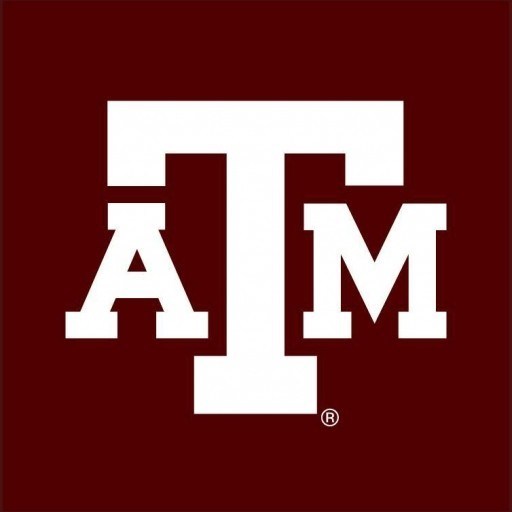Photos of university / #csuci
As a Mathematics student at CI, you will enjoy small class sizes, easy access to professors, and a solid foundation in Mathematics and Statistics. You will develop critical thinking, mathematical, computational and technological skills that enable you to analyze and propose solutions to real-world problems in many areas, including information sciences, statistics, finance, imaging, artificial intelligence, modeling and other technology-based fields.
Our M.S. in Mathematics program is interdisciplinary and innovative in nature, and offers a flexible schedule with highly qualified faculty. It is designed to address the global need for people with advanced mathematical, computational, and computer skills throughout the industry, high-tech, and educational systems. Students will acquire a strong background in mathematics and computer software, as well as the skills to conduct independent applied research or develop independent projects.
Your future
You will be prepared for teaching, graduate studies (in pure mathematics, applied mathematics, mathematics education, or the mathematical sciences) or for employment in high-tech and biotech industries. Mathematics graduates offer strong analytical and quantitative skills that are sought by a wide range of employers.
120 unitsSummary of Units:
|
||||||||||||
Lower Division Requirements - 34-35 unitsMATH 150 - Calculus I Units: 4 MATH 151 - Calculus II Units: 4 MATH 230 - Logic and Mathematical Reasoning (Cross-listed as PHIL 230) Units: 3 MATH 240 - Linear Algebra Units: 3 MATH 250 - Calculus III Units: 3 PHYS 200 - General Physics I Units: 4 Select one of the following:PHYS 201 - General Physics II Units: 4 and one additional science course Units: 3-4 or One two-semester science sequence Units: 7-8 Select one of the following:COMP 105 - Computer Programming Introduction Units: 3 COMP 150 - Object-Oriented Programming Units: 4 Select an additional Computer Science course:COMP 150 - Object-Oriented Programming Units: 4 or above or COMP 102 - Web Development Units: 3 Upper Division Requirements - 20 unitsMATH 300 - Discrete Mathematics Units: 3 MATH 331 - History of Mathematics Units: 3 MATH 350 - Differential Equations and Dynamical Systems Units: 3 MATH 351 - Real Analysis Units: 3 MATH 352 - Probability and Statistics Units: 3 MATH 451 - Complex Analysis Units: 3 MATH 499 - Senior Colloquium Units: 1 (Twice) Electives in Major - 9-13 unitsNote: Courses used for the concentrations cannot be counted as elective. Students planning on teaching math have to choose MATH 492 for field experience requirement. Other courses recommended for teaching careers are marked with T. MATH 318 - Mathematics for Secondary School Teachers Units: 3 T MATH 330 - Mathematics and Fine Arts Units: 3 T MATH 345 - Digital Image Processing (Cross-listed as COMP 345, PHYS 345) Units: 3 MATH 354 - Analysis of Algorithms Units: 3 MATH 393 - Abstract Algebra I Units: 3 T MATH 429 - Operations Research Units: 3 MATH 430 - Research Design and Data Analysis Units: 3 MATH 437 - Mathematics for Games, Simulations, and Robotics Units: 3 MATH 438 - Philosophy of Mathematics (Cross-listed as PHIL 438) Units: 3 MATH 445 - Image Analysis and Pattern Recognition (Cross-listed as PHYS 445, COMP 445)Units: 3 MATH 448 - Scientific Computing Units: 3 MATH 450 - Partial Differential Equations and Mathematical Physics Units: 3 MATH 452 - Computational Bioinformatics (Cross-listed as COMP 452) Units: 4 MATH 480 - Differential and Riemannian Geometry Units: 3 MATH 482 - Number Theory and Cryptography Units: 3 T MATH 484 - Algebraic Geometry and Coding Theory Units: 3 MATH 490 - Topics in Modern Mathematics Units: 3 MATH 492 - Internship Units: 1-3 T (Required for teachers) MATH 494 - Independent Research Units: 1-3 MATH 497 - Directed Studies Units: 3 MATH 499 - Senior Colloquium Units: 1 Concentration - 6-10 unitsBy the sophomore year, in order to plan their electives, students should decide on one of the concentrations and take all courses listed in that section. Choice of other concentrations or individualized concentrations is possible upon approval of the mathematics advisor. Education - 9 unitsMATH 318 - Mathematics for Secondary School Teachers Units: 3 MATH 393 - Abstract Algebra I Units: 3 EDUC 512 - Equity, Diversity and Foundations of Schooling Units: 3 Interdisciplinary GE Course outside major - 3 unitsSelect one interdisciplinary GE Course 3 unitsRecommended: COMP 447 - Societal Issues in Computing Units: 3 COMP 449 - Human-Computer Interaction (Cross-listed as PSY 449) Units: 3 PHYS 434 - Introduction to Biomedical Imaging (Cross-listed as BIOL 434, HLTH 434) Units:4 |
To graduate, students must complete 120 units minimum (40 units must be upper division) including all General Education (GE) and Graduation Requirements . The following areas must be included:
Additional Lower Division A-E (GE) Requirements not met within the major
Nine units of Upper Division Upper Division Interdisciplinary GE (UDIGE), courses are numbered 330-349 and 430-449. Six units may be within the major, 3 units must be outside the major (C or better grade)
Multicultural Requirement (C or better grade)
Language Requirement (C or better grade)
American Institutions Requirement
Free electives as needed to meet minimum units for graduation
Financing studies at California State University typically encompass a comprehensive overview of the financial aspects associated with pursuing higher education at this institution. The program often includes detailed information about tuition fees, including in-state and out-of-state costs, as well as additional expenses such as housing, textbooks, and personal expenses. Students are provided guidance on various funding sources, including federal and state financial aid programs, scholarships, grants, and work-study opportunities designed to alleviate the financial burden of college life. The university generally recommends early application for financial aid to maximize eligibility and emphasizes the importance of maintaining satisfactory academic progress to retain financial support.
Moreover, the program covers understanding loans, the terms of borrowing, repayment plans, and managing debt responsibly post-graduation. Students learn about the California Dream Act and ability to apply for financial assistance regardless of specific residency status, ensuring access to education funding for a diverse student body. The curriculum may include workshops and counseling sessions to help students develop financial literacy, budgeting skills, and strategies for minimizing student debt. Additionally, the program often highlights external funding options, such as private scholarships and community grants, which can supplement institutional aid.
In the context of understanding the total cost of education, financing studies also address how to plan financially for the entire duration of the degree program, considering potential changes in tuition fees or living expenses. This comprehensive approach ensures that students are well-informed about their financial options and responsibilities, allowing for better planning and reducing financial stress throughout their academic journey. The goal of the financing studies program is to empower students with the knowledge and resources needed to finance their education effectively, ensuring access to higher education is equitable and sustainable.
The Education Concentration at California State University is designed to provide students with a comprehensive understanding of educational theories, practices, and policies. This program aims to prepare students for careers in various educational settings, including elementary, secondary, and post-secondary institutions, as well as roles in educational administration, counseling, and community education. The curriculum typically covers a broad range of topics, such as child and adolescent development, educational psychology, curriculum design, assessment strategies, and diversity in education. Students may also explore policy issues affecting education systems and gain practical experience through internships or fieldwork placements.
The program is suitable for students planning to pursue teaching credentials, advanced degrees in education, or careers that involve educational leadership and advocacy. Coursework often emphasizes both theoretical foundations and practical applications, ensuring graduates are well-equipped to address the challenges faced by modern educational environments. Throughout their studies, students develop critical thinking skills, cultural competency, and effective communication abilities, which are essential for fostering inclusive and engaging learning experiences.
In addition to core classes, students might have opportunities to specialize or take elective courses aligned with their interests, such as special education, bilingual education, or technology in education. The program often collaborates with local schools and community organizations to provide hands-on learning opportunities, helping students build professional networks and gain valuable experience.
Overall, the Education Concentration at California State University fosters a strong foundation for those committed to making a positive impact in education. Graduates of the program are prepared to pursue certification, graduate studies, or careers dedicated to enhancing educational outcomes for diverse student populations. The university supports student success through dedicated faculty, resources, and partnerships designed to enhance educational practice and policy.



